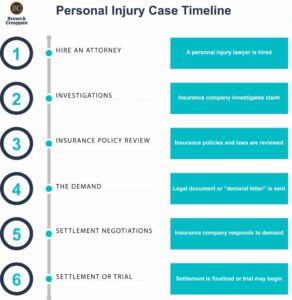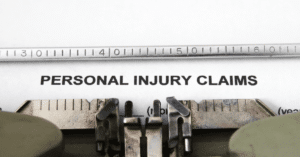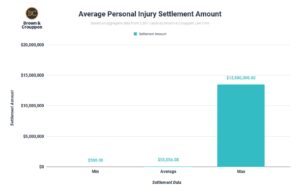1. Medical Treatment
As long as a client is still receiving medical treatment for the injury, it is too early to resolve the case. This is because you and your attorney need to know the full extent of the damages on your claim. Ascertaining all of the damages on a case means your lawyer needs to know the full extent of:
- Your medical bills.
- Your lost wages.
- Any permanent damage you may have suffered as a result of the injury.
That cannot really be known until you have completed your medical treatment.
2. Waiting For Medical Records
After you have completed your treatment, your personal injury attorney and paralegal will need to purchase your medical records from your health care providers for all of the treatment you received from the injury.
In order to be considered an authentic record of your treatment and admissible in court, your medical records must be certified. The process of certifying records takes longer than just getting copies made. It can take a while for medical providers to get the records back to your legal team.


Were you injured in an accident due to someone else’s negligence? Get legal help from the most effective injury law firm in the Midwest.
3. Pending Response From Other Parties
Just because your lawyer is responding to you in a timely fashion doesn’t mean the other side is. Sometimes, the other side ducks calls and ignores letters. Your lawyer will certainly do everything possible to move the case forward but they cannot control what the other side is doing.
4. Case Is Filed In Court
Once a case gets filed in court, things can really slow down. Common reasons why a case will take longer than one would hope can include:
- Trouble getting the defendant or respondent served. The case cannot proceed until the defendant on the case has been formally served with the court papers. Usually, this means that a process server has to hand-deliver the paper to the defendant. If the defendant is not at home or work (or is just very adept at ducking service) this can take a few months.
- Discovery takes time. Discovery is the process where each side obtains evidence from the opposing party. Typical forms of discovery include:
- Interrogatories. These are a set of written questions asked by the opposing party. The questions must be answered in writing under oath within a specified time (usually 30 days).
- Requests for production of documents or things. This is exactly what it sounds like. It is a formal request that the opposing party produce documents, electronic information, or other tangible items.
- Requests for admissions. These are written statements that one party asks another party to admit or deny under oath. For example, in a car accident, the plaintiff may ask the defendant to admit that they were in a motor vehicle accident on a particular date and time and place.
- Depositions. This is the taking of a recorded, oral statement of a witness who is under oath. A court reporter may be there to transcribe the proceeding, or it may be on video, or both. The witness being deposed might be a party to the case (a plaintiff or defendant) or they may be a fact or expert witness.
If a party objects to a discovery request, they may file motions and have hearings on them before the judge. That takes time.
- Court dockets are crowded. A crowded docket means hearings before the court can take a long time to schedule. Continuances are common.
Finally, if you ever want to know what is going on with your case, do not ever feel shy about calling or emailing your lawyer or your paralegal.
Additional Causes of Slow Cases
There can be delays throughout the timeline of a personal injury case at any step. Other causes of delays can be due to the collection of evidence and waiting for a response from the insurance company.
In many cases, the insurance company may be hesitant to quickly agree to a demand or negotiate a settlement, which can prolong the life of a case.







